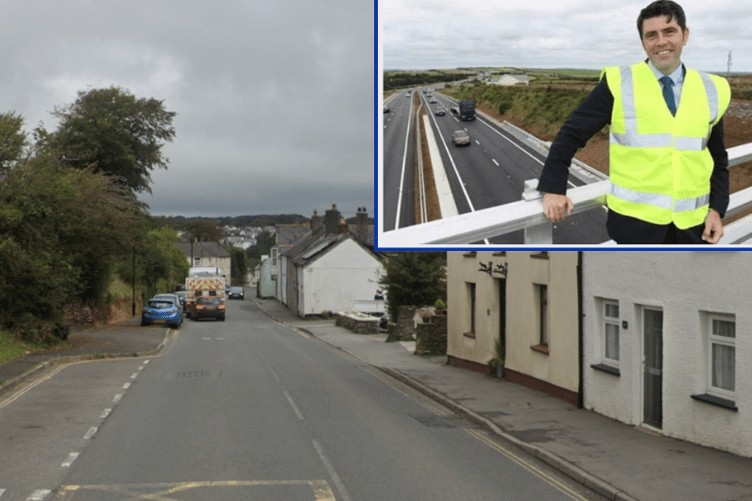PROPOSALS for the long-awaited Camelford Bypass could become a reality by 2030.
At a recent full meeting of Camelford Town Council, councillors were given an update on progress to create the bypass, which is anticipated to alleviate the current congestion and air pollution caused by the A39 going through the town’s centre.
It would seek to emulate a similar scheme in Wadebridge in the early 1990s, where a bypass over the River Camel took the ‘through traffic’ away from the town centre.
Councillors were given an update on progress, which was recently given funding from the government to work on the business case in order to secure more funding.
They were told that the council had recently been part of the 29th meeting with the project team, with the completed business case for the project, supported by the MP for North Cornwall, Scott Mann, going to cabinet on February 7, before a routine ten days ‘cooling off period’ prior to submission to the Department of Transport.
However, it was also noted that the potential costs for the project have increased to £145-million.
This would comprise the £80-million construction cost, £25-million for the cost of inflation and the provision of a £29-million ‘risk pot’.
The next phase will be for those involved to approve the securing of planning of planning permission and the draft compulsory purchase orders, which will enable the purchase of the necessary land required to build the bypass. There is also the potential for a public enquiry, which would involve engagement with the residents of the local area.
After this, the project will go back to the Department of Transport for final approval.
Councillors also heard that according to the current working schedule, construction works could begin in 2028 and be completed by 2030.
In the minutes, it was noted: “The business case went to cabinet on February 7, with ten days cooling off and submitted to the Department of Transport. Costs have gone up, projected total cost of £80 million construction cost, £25-million inflation and £29 million risk pot. Works could start 2028 and complete in 2030.”

.jpeg?width=209&height=140&crop=209:145,smart&quality=75)



Comments
This article has no comments yet. Be the first to leave a comment.